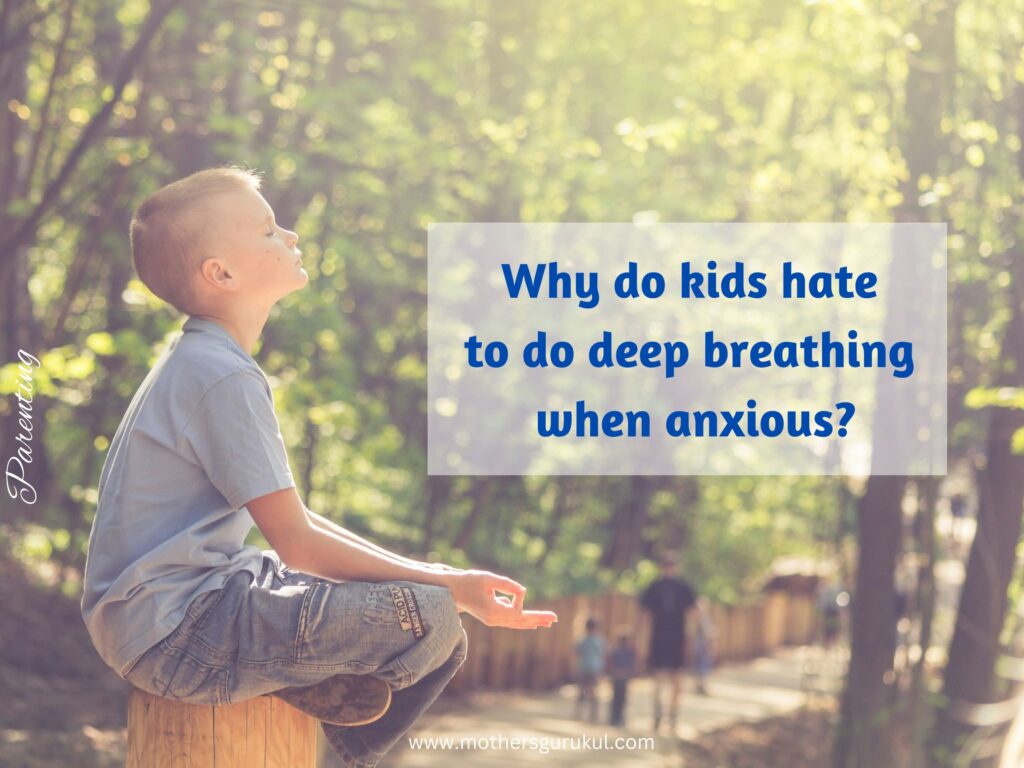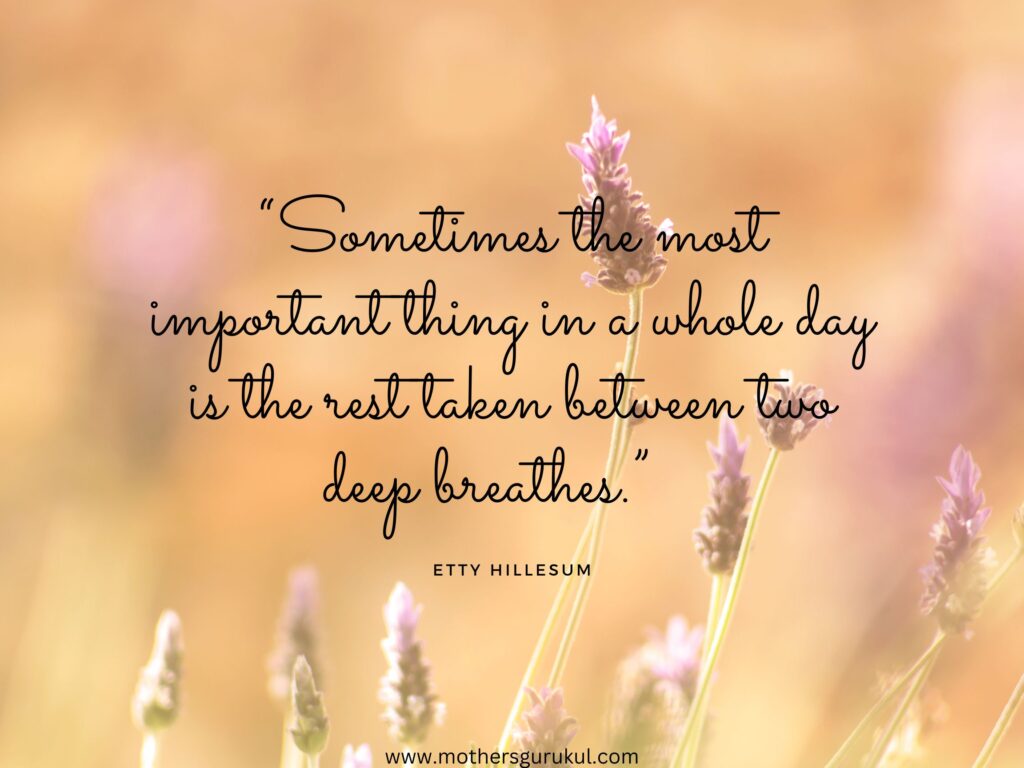One of my colleagues has incorporated deep breathing and quiet time for her students before they resume studies after the lunch break. The other day, we were talking about deep breathing and why it is important for the kids. She said, “I really wish we could introduce guided meditation in our school routine. They feel overwhelmed due to a packed routine that they even forget to breath properly. When anxious, they find it hard to calm themselves down”. I felt she was so right.
We are talking about 6-7 years old kids. Now imagine what will happen by the time they reach high school. Should we wait for the schools to introduce meditation into their routine, or should we try to convince them to start doing deep breathing? I think the latter will be easier to do. In this post, let’s talk about the importance of deep breathing in general and then focus on why kids hate to do deep breathing when anxious.
Before reading further, take three deep breaths. How does it feel? Have your airways cleared up? Now, think of the effect we will experience if we train ourselves to do such breathing all the time. Deep breathing helps us calm down and gain clarity in our thoughts. When we are clear in our thoughts, we can accomplish what we have aimed for. We feel good inside out.

So, when there are so many benefits, why it is difficult for kids to practice it?
1.Kids may need a little more help to figure out how to properly take a deep breath:
The answer to this is – Show them the correct way
Deep breathing needs some practice. Most of the time, kids haven’t tried deep breathing properly. Either they took three quick deep breaths or held their breath for so long that they felt suffocating, opposite to the true experience. It is called deep breathing because we need to pause between breathing. And taking a deep breath can never make us feel suffocated. Instead, it provides more oxygen to our brains.
Related article: 4-7-8 breathing
2.They are unclear about the reason behind deep breathing:
The answer to this is – Explain to them a little bit of a science in an easy language
In simple language, when we are calm, our body is in “resting” mode. Our breathing is normal, our muscles are relaxed, and our heart rate is normal. On the contrary, when we experience any stressful event or emotion, we enter a “flight, fight, or freeze” state. Taking a few deep breathes helps us transition from “flight, fight, or freeze” to “resting” mode.
Now, let’s understand the science.
When we are anxious, our brain looks for quick options. The amygdala, the almond-shaped part of our brain, is responsible for processing emotions, especially fear, anxiety, and rage. When the amygdala perceives something threatening, it triggers a series of physiological changes, including rapid breathing. Breathing patterns can affect brain activity, and the amygdala is involved in this process.
In this state, we tend to breathe fast because we need more oxygen to supply our muscles, which triggers fast breathing. We should stop and remind ourselves to take deep breaths. Northwestern Medicine scientists have found that breathing does more than supply oxygen; it also impacts brain function and emotional behavior.
You can read this entire article: https://neurosciencenews.com/memory-fear-breathing-5699/

Wrap Up!
Deep breathing can significantly affect a kid’s overall well-being. Let’s try to convince them about its benefits. But before that, let’s remind ourselves to do deep breathing the next time we are anxious.
Here is a helpful video. Do watch it.
